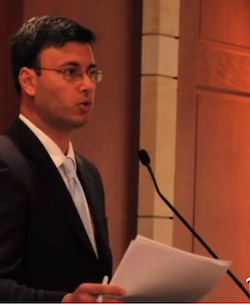News
The Need for Speed - It's Time to Act!
 As a society we also need to get moving on the population level as well - and the sooner the better! In his fascinating genomic epidemiology detective work Trevor Bedford conducted based on the COVID-19 research he and his team had done in the Bedford lab in Seattle WA, he concluded that the narrow testing that was done in the Seattle area in the early days of the Coronavirus spread allowed the virus to spread faster. In contrast, the Coronavirus testing-blitz in South Korea appears to keep the death rate lower than it could be. It's time to test! The FDA gave high-tech labs the green light to operate tests before receiving any agency review or authorization and both Quest Diagnostics and LabCorp already announced that they have test in the market. But according to CDC, as of March 8 there were only 1,707 tests performed in the US vs. 189,236 in South Korea.
As a society we also need to get moving on the population level as well - and the sooner the better! In his fascinating genomic epidemiology detective work Trevor Bedford conducted based on the COVID-19 research he and his team had done in the Bedford lab in Seattle WA, he concluded that the narrow testing that was done in the Seattle area in the early days of the Coronavirus spread allowed the virus to spread faster. In contrast, the Coronavirus testing-blitz in South Korea appears to keep the death rate lower than it could be. It's time to test! The FDA gave high-tech labs the green light to operate tests before receiving any agency review or authorization and both Quest Diagnostics and LabCorp already announced that they have test in the market. But according to CDC, as of March 8 there were only 1,707 tests performed in the US vs. 189,236 in South Korea.
- Login to post comments
- News
Coronavirus and the Recurring Mistake of Fighting the Wrong Wars
 What do the coronavirus and Navy ships have in common? For that matter, what do our military spending and our healthcare spending have in common? More than you might think, and it boils down to this: we spend too much for too little, in large part because we tend to always be fighting the wrong wars.I started thinking about this a couple weeks ago due to a WSJ article about the U.S. Navy's "aging and fragmented technology." An internal Navy strategy memo warned that the Navy is "under cyber siege" by foreign adversaries, leaking information "like a sieve." It grimly pointed out...
What do the coronavirus and Navy ships have in common? For that matter, what do our military spending and our healthcare spending have in common? More than you might think, and it boils down to this: we spend too much for too little, in large part because we tend to always be fighting the wrong wars.I started thinking about this a couple weeks ago due to a WSJ article about the U.S. Navy's "aging and fragmented technology." An internal Navy strategy memo warned that the Navy is "under cyber siege" by foreign adversaries, leaking information "like a sieve." It grimly pointed out...
- Login to post comments
- News
DoD Looks for Disaster Response Solutions Through Artificial Intelligence Innovation Competition
 An important new trend in the federal sector involves the use of "innovation competitions" to develop Artificial Intelligence (AI) solutions for major problems that the agencies face. An ongoing AI innovation competition from Centers for Medicare and Medicaid Services (CMS), known as the Artificial Intelligence (AI) Health Outcomes Challenge began in March 2019. While that competition is only open to major consulting firms, the Department of Defense (DoD) was the trendsetter here and has been working on a series of AI competitions that began with the xView competition in March 2018.
An important new trend in the federal sector involves the use of "innovation competitions" to develop Artificial Intelligence (AI) solutions for major problems that the agencies face. An ongoing AI innovation competition from Centers for Medicare and Medicaid Services (CMS), known as the Artificial Intelligence (AI) Health Outcomes Challenge began in March 2019. While that competition is only open to major consulting firms, the Department of Defense (DoD) was the trendsetter here and has been working on a series of AI competitions that began with the xView competition in March 2018.
- Login to post comments
- Feature Story
3 Steps For Product Marketing Your Open Source Project
 Product marketing for COSS is materially different from product marketing for proprietary software and from general marketing practices like ads, lead generation, sponsorships, booths at conferences and trade shows, etc. Because the source code is open for all to see and the project's evolutionary history is completely transparent, you need to articulate—from a technical level to a technical audience—how and why your project works. Using the word "marketing" in this context is, in fact, misleading. It's really about product education. Your role is more like a coach, mentor, or teaching assistant in a computer science class or a code bootcamp than a "marketing person."
Product marketing for COSS is materially different from product marketing for proprietary software and from general marketing practices like ads, lead generation, sponsorships, booths at conferences and trade shows, etc. Because the source code is open for all to see and the project's evolutionary history is completely transparent, you need to articulate—from a technical level to a technical audience—how and why your project works. Using the word "marketing" in this context is, in fact, misleading. It's really about product education. Your role is more like a coach, mentor, or teaching assistant in a computer science class or a code bootcamp than a "marketing person."
- Login to post comments
- News
Open Source Governance and the Rise of a New Open Health Movement
 It's hard to tell if (or when) new open source foundations will appear and claim a leading role in healthcare. It would be interesting to see one created to scale an existing viable model, such as the one from Oroville Hospital using VistA. Or we could see OSEHRA shifting its focus and expanding its charter beyond just the US government space. Nevertheless, the successful foundation would keep a low barrier to entry for innovators, allowing them to incorporate and scale open source healthcare technologies into commercial products. Time will tell, but what's for certain is that we live in interesting times, and I am looking forward to massive innovation in healthcare in the near future. The time is ripe.
It's hard to tell if (or when) new open source foundations will appear and claim a leading role in healthcare. It would be interesting to see one created to scale an existing viable model, such as the one from Oroville Hospital using VistA. Or we could see OSEHRA shifting its focus and expanding its charter beyond just the US government space. Nevertheless, the successful foundation would keep a low barrier to entry for innovators, allowing them to incorporate and scale open source healthcare technologies into commercial products. Time will tell, but what's for certain is that we live in interesting times, and I am looking forward to massive innovation in healthcare in the near future. The time is ripe.
- Login to post comments
- Feature Story
Using Open Technology To Build a Biodefense Against the Coronavirus
 As the number of US cases of the coronavirus rises, how will healthcare professionals be able to tell the difference between which panicked patients with similar symptoms has what? Even if the patient hasn't traveled to Wuhan or China recently, what if they sat at a Starbucks with someone who did? With the incubation time-lag before symptoms appear, who would even know? The challenge of monitoring 330 million people for infectious disease outbreaks is daunting. Take the flu as an example. During the last flu season which, as already discussed, was not as complex as this year's season, approximately 35.5 million Americans had flu symptoms, 16.5 million received medical care, 490,600 were hospitalized and 34,200 died.
As the number of US cases of the coronavirus rises, how will healthcare professionals be able to tell the difference between which panicked patients with similar symptoms has what? Even if the patient hasn't traveled to Wuhan or China recently, what if they sat at a Starbucks with someone who did? With the incubation time-lag before symptoms appear, who would even know? The challenge of monitoring 330 million people for infectious disease outbreaks is daunting. Take the flu as an example. During the last flu season which, as already discussed, was not as complex as this year's season, approximately 35.5 million Americans had flu symptoms, 16.5 million received medical care, 490,600 were hospitalized and 34,200 died.
- Login to post comments
- Feature Story
VA Tackles Medical Device Vulnerabilities and Cyberthreats
 VA recently signed partnerships with Massachusetts General Hospital and Shepherd University. This collaboration's research will address cybersecurity and compatibility measures needed in devices used for VA patient care. It will also refine existing and emerging cybersecurity standards and practices for network connectable medical devices, medical data systems and other related technology. Beyond VA, the agreements could have a broad impact in standardizing cybersecurity and safety requirements within the larger public health sector. VA is contributing to industry-wide awareness of both medical device vulnerabilities and threats, while applying further tests of the Underwriters Laboratories criteria and other emerging standards.
VA recently signed partnerships with Massachusetts General Hospital and Shepherd University. This collaboration's research will address cybersecurity and compatibility measures needed in devices used for VA patient care. It will also refine existing and emerging cybersecurity standards and practices for network connectable medical devices, medical data systems and other related technology. Beyond VA, the agreements could have a broad impact in standardizing cybersecurity and safety requirements within the larger public health sector. VA is contributing to industry-wide awareness of both medical device vulnerabilities and threats, while applying further tests of the Underwriters Laboratories criteria and other emerging standards.
- Login to post comments
- News
Why the Founder of Apache Is All-in on Blockchain
 Brian Behlendorf is perhaps best known for being a co-founder of the Apache Project, which became the Apache Software Foundation. Today, he's the executive director of the Hyperledger Foundation, an organization focused on enterprise-grade, open source, distributed ledgers (better known as blockchains). He also says he "put the first ad banner online and have been apologizing ever since." In a recent conversation on my podcast, Behlendorf talks about the goals of the Apache Project, the role of foundations generally, and his hopes for blockchain...
Brian Behlendorf is perhaps best known for being a co-founder of the Apache Project, which became the Apache Software Foundation. Today, he's the executive director of the Hyperledger Foundation, an organization focused on enterprise-grade, open source, distributed ledgers (better known as blockchains). He also says he "put the first ad banner online and have been apologizing ever since." In a recent conversation on my podcast, Behlendorf talks about the goals of the Apache Project, the role of foundations generally, and his hopes for blockchain...
- Login to post comments
- News
Mortal Coils: Why We Must Stop Tolerating Failing Health Tech
 Today, data are scattered across thousands of database tables within any single electronic medical record (EMR) system, but also across dozens of other systems that hold pharmacy data, imaging data, insurance data, laboratory data, etc. Pretty much none of it is available on demand in any given clinical setting. The inevitable result of this disconnected galaxy of data "black holes" is mistakes, or if not outright mistakes, well-intentioned missteps based on lack of background data within the acute-care setting.
Today, data are scattered across thousands of database tables within any single electronic medical record (EMR) system, but also across dozens of other systems that hold pharmacy data, imaging data, insurance data, laboratory data, etc. Pretty much none of it is available on demand in any given clinical setting. The inevitable result of this disconnected galaxy of data "black holes" is mistakes, or if not outright mistakes, well-intentioned missteps based on lack of background data within the acute-care setting.
- Login to post comments
- News
CMS Promoting Interoperability in 2021: All good things must come to an end?
 We have spent years involved with the management of the Center for Medicare and Medicaid Services (CMS) Electronic Health Records (EHR) Incentive Programs which were created by the HITECH Act (2009). These programs were recently renamed Promoting Interoperability (PI) programs. In a nutshell, these programs were tied to the Medicare and Medicaid insurance programs and provided financial incentives over a number of years to ambulatory providers and hospitals to adopt and use EHRs. Vendors submitted their technology products for testing and certification that they performed specific functions and could exchange data using specified message formats...But the provisions of the HITECH Act are due to expire on September 30, 2021 (see CMS timeline). These are the programs affected...
We have spent years involved with the management of the Center for Medicare and Medicaid Services (CMS) Electronic Health Records (EHR) Incentive Programs which were created by the HITECH Act (2009). These programs were recently renamed Promoting Interoperability (PI) programs. In a nutshell, these programs were tied to the Medicare and Medicaid insurance programs and provided financial incentives over a number of years to ambulatory providers and hospitals to adopt and use EHRs. Vendors submitted their technology products for testing and certification that they performed specific functions and could exchange data using specified message formats...But the provisions of the HITECH Act are due to expire on September 30, 2021 (see CMS timeline). These are the programs affected...
- Login to post comments
- News